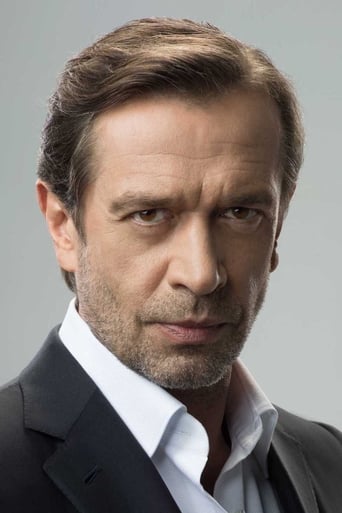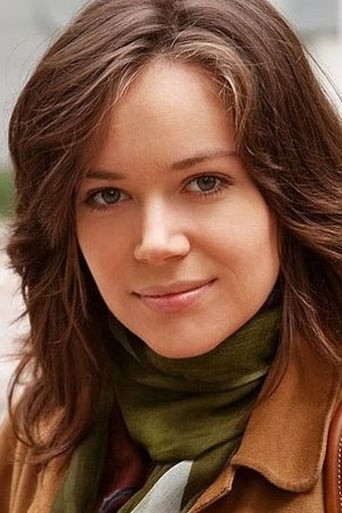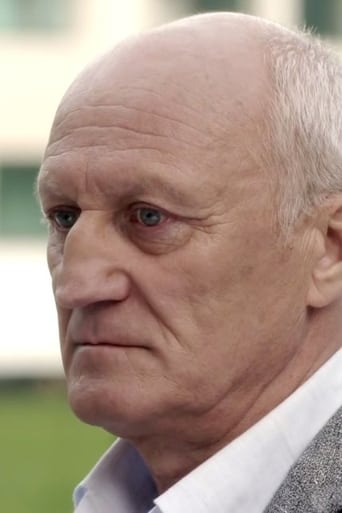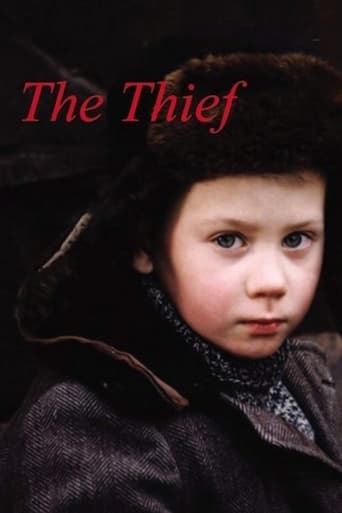
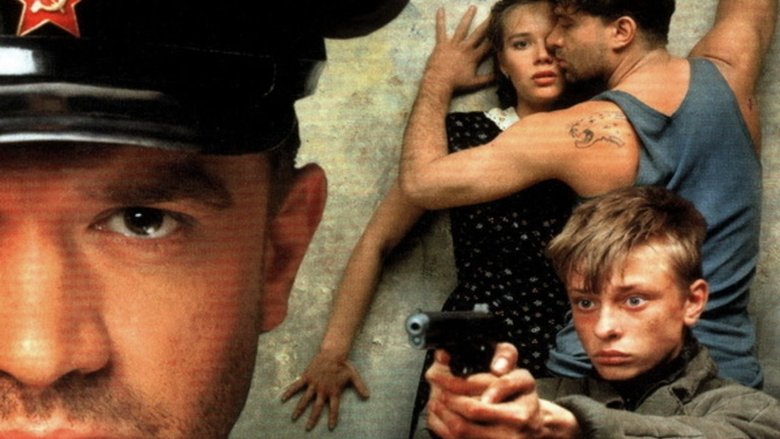
The Thief (1998)
Katya and her 6-year-old son Sanya, who, in 1952, meet a veteran Soviet officer named Tolyan. Katya falls in love with Tolyan, who turns out to be a small time criminal, but who also becomes a father figure to Sanya ...
Watch Trailer
Cast
Reviews
That was an excellent one.
Absolutely Fantastic
The film makes a home in your brain and the only cure is to see it again.
Story: It's very simple but honestly that is fine.
The Thief is narrated by a man looking back at his childhood in a post-WWII Soviet society, but while the narration might be that of an adult's, Chukhrai makes the perspective of the camera distinctly childlike. The protagonist, Sanja, never gets to see the full view of the world; Chukhrai cuts people off before the viewer (and by assumption, this is what Sanja sees) can do a full once-over, and inside shots rarely lift to reveal the ceiling or tops of windows. The physical landscape begins to take cues from the camera and Sanja's surroundings become increasingly claustrophobic. Eventually the "family" is living in a basement communal apartment, with only a stunted view of the world; the scene in which the boy stares longingly out the dwarfed window is reminiscent of Abram Room's Bed and Sofa. So similar is this technique, in fact, that it produces a similar effect: Sanja and his mother, are having their freedom restricted by Toljan and they are trapped. Chukhrai takes advantage of long shots when he has them, and slowly pans to reveal Sanja's mother giving birth, a dream sequence in which Sanja sees his father, or the empty winter landscape. These scenes disrupt the child's-perspective and the flittering camera cuts that work to keep up with the action and add a hazy, dreamlike quality to the film. Of particular note is the acting of Misha Philipchuk. While it's easy to extend a fair amount of grace and not expect a stunning performance from child actors, Philipchuk is mesmerizing as Sanja. The acting overall is very solidly done, and the other aspects of the film (cinematography, innovative perspective of camera, script) are all done with noticeable skill.
My summary isn't meant as criticism--it's just what you'll see when you watch this film. It is well made and I admired some of the acting-- such as the nice performance the director got out of a little boy. But the film is such a downer I cannot imagine it having any widespread audience.The film begins in the Soviet Union just after WWII. A woman collapses and give birth along a muddy road. The scene then skips ahead six years. The widow mother and her boy are on a train--- heading nowhere in particular. On the train, she meets a dashing soldier and he sweeps her off her feet. Next they're moving into a crummy apartment and soon she realizes that he is NOT a soldier but a sociopath who steals without remorse. But the mother is a strongly dependent personality and she refuses to leave the bum and the trio travel across the country stealing and living irresponsible lives. What's next? See the film...just understand it won't get any prettier!I admire the film for being daring and different. I would assume such a picture never would have been made in the old Soviet Union and the film is clear indication of changing times and attitudes. Worth seeing if you love international films, my only complaints about the film are that it don't think it was so good that it should have been Oscar- nominated plus it was SUPPOSED to be told from the child's viewpoint--yet several scenes occurred where the child was not present--so HOW could the kid have known what happened? Decent, unpleasant and unique.
Chukhrai's The Thief (1997) has superficially a lot in common with the films of the Soviet thaw period. It follows the impressionable childhood of a young boy, left fatherless by the war, as he and his mother adjust to living with a new father figure. However, thematically it shares much more with the dark (much of the film actually takes place in darkness or near-darkness), violent, and morally ambiguous films of the late- and post-Soviet eras. The Thief is almost the anti-"Moscow does not believe in tears", depicting a lonely single mother who finds in a charming stranger not a perfect mate and father figure, but an aggressive and morally baseless opportunist who, upon a test of faith, reveals none of the love or loyalty of which he seemed to be capable. Moral uncertainty is a constant theme; despite the 1940s setting, The Thief has all of the loss, disappointment, and listlessness of the postwar films, but none of the hope and ideological faith. The story poses many questions – whether immorality is acceptable in the preservation of a family, whether a poor father figure is better than none, whether violence is preferable to weakness – and answers none of them. Even a murder at the end that might have been redemptive or cathartic is emotionally blank: the main character bleakly narrates, "nothing existed, nothing, nothing, nothing." However, The Thief has little of the crushing psychological brutality of post-war cinema – the film is never dull or trudging, and even contains some of the excitement and humor of western crime films. The film really offers nothing in terms of morality or judgment. Chukhrai does not even indulge in the classic trope of the protective mother and the abusive father. We are faced instead with a 1990s story in a 1940s setting: a boy lives his formative years in an amoral world, loving those he is with, and ending up with nothing but loneliness and ambiguity.
Pavel Chukhraj's award winning film THE THIEF is one of those special films that should be owned and revisited - like a favorite novel or poem or symphony. Chukhraj both wrote and directed this tale/fable set in Stalinist Russia, a story which encompasses the impact on a child of loss of a father in the war, the appalling living standards in the communes during the 1950s where multiple families and comrades shared space and survived the lack of privacy, and the extents to which people will go to survive what fate has dealt them and the sad sequelae that follow.The story opens on the cold steppes of Russia where Katya (Yekaterina Rednikova) gives birth to a son Sanya (Misha Philipchuk) in the mud of a country in disrepair in 1946. Narrated by the adult Sanya we next see Katya and Sanya on board a train where they encounter a handsome soldier Tolyan (Vladimir Mashkov), a seemingly gentle man who immediately bonds with the two 'refugees'. The remainder of the story deals with the fact that Tolyan is a thief and causes disruptive moves of his 'family' as he plunges them deeper into the hole of his crimes. At times he is harsh with Sanja, at time he is protective and instructive as a surrogate father, teaching Sanya the cruel rules of survival. He is finally imprisoned, Katya dies from an infection following an abortion, and Sanya grows into his teen years in orphanages, dreaming of his real father, wondering about Tolyan. They two make a final surprise encounter that leads to the ending of the story.The actors are exceptional, the supporting cast is particularly fine, and the cinematography and set designs are something beyond description. The eyes of Sanya (those of Misha Philipchuk) will haunt you and beckon return to this most impressive and touching film. Highly recommended. Grady Harp
